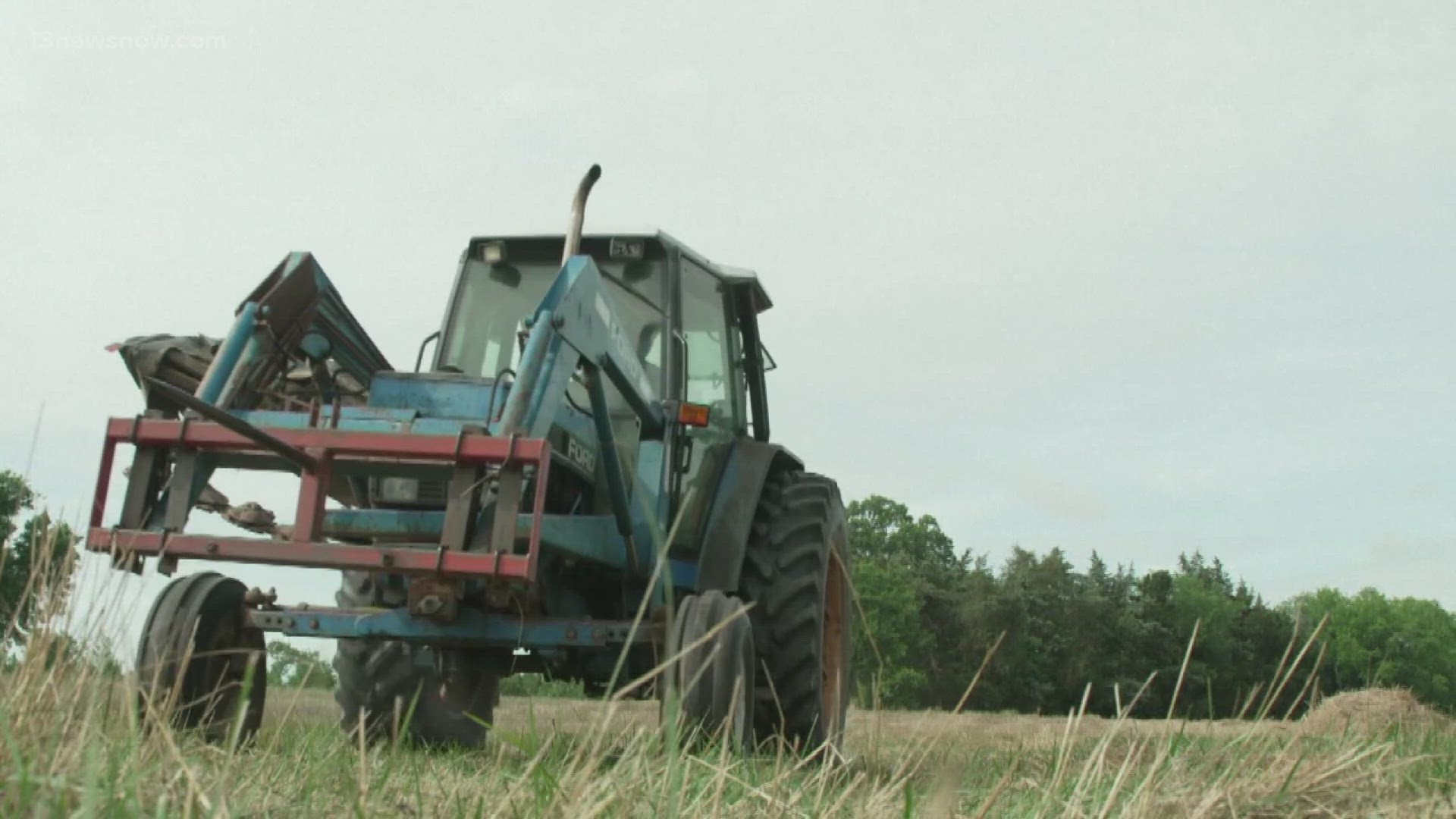NORFOLK, Va. — An $80 million grant is headed to Virginia Tech in support of a new program encouraging farmers to use climate-smart practices.
Alongside the Alliance to Advance Climate-Smart Agriculture, the College of Agriculture and Life Sciences will use the money from the U.S. Department of Agriculture to pilot a program paying producers to enact climate-friendly practices on farms of all sizes, the university said in a news release.
The three-year program will start in Virginia, Arkansas, Minnesota and North Dakota, and will test whether or not a similar program could exist on the national level. The university said that if the program were to exist nationally, it could help reduce agricultural emissions by 55% — and total emissions in the U.S. by 8%, after 10 years.
“This is a watershed program that helps the agricultural industry be a leader in addressing climate change,” said Tom Thompson, the principal investigator on the project, associate dean of the college and director of CALS Global, in the release.
Thompson credited the pilot concept to Rural Investment to Protect our Environment (RIPE).
Through the pilot program, producers will earn $100 per acre or animal unit for voluntarily adopting green practices than earn more than that amount in public environmental benefits.
The program pays producers more than the cost of implementation while helping their bottom lines, which differs from previous cost-sharing programs, according to the release.
In an announcement, Agriculture Secretary Tom Vilsack said the USDA is helping to build these market opportunities for U.S. agriculture and lead climate-smart agricultural production.
"This effort will increase the competitive advantage of U.S. agriculture both domestically and internationally, build wealth that stays in rural communities, and support a diverse range of producers and operation types," Vilsack said.
The program will include a model created by Virginia Tech researchers to ensure participant diversity. According to the release, at least 40% of those involved will be underserved and small producers.
Additionally, at least 500 operations with socially disadvantaged or limited resource producers will participate in the pilot.
Of the funding, $2 million will head to both Minnesota and Virginia to create green animal-feeding practices.
Throughout the three-year program, researchers with the university will monitor greenhouse gas savings of the initiative as they are implemented, while also taking inventory of other environmental benefits.
They will also take note of consumers' willingness to pay for products with climate-smart labels, the release said.
"Farmers have always been the great stewards of our land, and American agriculture has always been a productivity powerhouse," Thompson said. "This pilot program will help them continue to do so for generations to come.”

